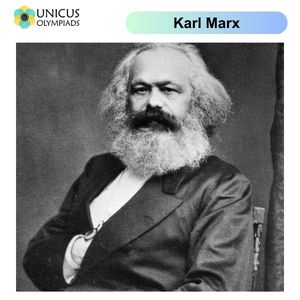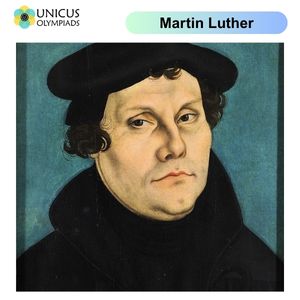

Throughout history, leaders have used powerful phrases and slogans to inspire, rally, and motivate people towards political, social, and cultural change. Some of these phrases have become iconic, resonating across generations and shaping movements that have defined global history. Two such leaders, Karl Marx and Martin Luther, used memorable and impactful phrases that still carry significant meaning today. Their words not only sparked revolutionary ideas but also became symbols of broader social, political, and religious upheavals. This article explores some of the powerful phrases used by Karl Marx and Martin Luther and the enduring impact of their words on the world.
Karl Marx, a German philosopher, economist, and revolutionary socialist, is best known for his theories on communism and socialism, which laid the foundation for modern Marxist thought. His writings, including The Communist Manifesto and Das Kapital, have had an enduring influence on political movements around the world. Marx’s ideas were revolutionary, advocating for the overthrow of capitalist societies and the establishment of a classless, stateless society. His powerful phrases and slogans served as rallying cries for the working class and revolutionaries worldwide.

This phrase from The Communist Manifesto (1848) is perhaps the most famous and enduring of Marx’s slogans. The call to action was directed at the working class, urging them to recognize their shared struggles and interests across national borders. The phrase encapsulated the core idea of Marxism: the liberation of the proletariat (working class) from the bourgeoisie (capitalist class). It became a key slogan for labor movements and socialist revolutions throughout the 19th and 20th centuries.
Found in The Communist Manifesto, this phrase encapsulates one of Marx’s key arguments about the development of human societies. Marx believed that history is shaped by the struggle between different social classes, from feudalism to capitalism. The phrase emphasizes that economic systems are rooted in class conflict, with the oppressed class (proletariat) inevitably seeking to overthrow the ruling class (bourgeoisie).
Although this phrase is attributed to Karl Marx in his work Critique of the Gotha Program (1875), it represents the ideal of a communist society in which wealth and resources are distributed based on the needs of individuals, rather than their ability to produce. It reflects Marx’s vision of a classless society where exploitation is abolished, and all people have equal access to resources.
Martin Luther, a German monk, theologian, and religious reformer, is best known for his role in the Protestant Reformation. Luther’s challenge to the Catholic Church, particularly his posting of the 95 Theses in 1517, sparked a religious movement that led to the establishment of Protestantism. Luther’s powerful phrases and writings called for religious reform, emphasizing the importance of personal faith, scripture, and salvation. His words continue to inspire millions of people in Christian communities around the world.

This famous phrase is attributed to Martin Luther during his trial at the Diet of Worms in 1521. Luther was asked to recant his teachings, which criticized the Catholic Church and its practices. In response, Luther famously declared that he could not recant, as his conscience was bound by the Word of God and the scriptures. This statement became a symbol of courage, conviction, and unwavering commitment to one’s beliefs.
This phrase comes from Luther’s interpretation of the Bible, specifically from the Epistle to the Romans (Romans 1:17). Luther emphasized that salvation is achieved through faith alone, rather than through works or the intercession of the Church. This idea was central to Luther’s theological beliefs and became a core tenet of Protestantism.
This phrase comes from Martin Luther’s work The Freedom of a Christian (1520), where he outlines the concept of Christian freedom. Luther argued that through faith, Christians are freed from the bondage of sin and the need to rely on the Church’s authority. Christians, therefore, are free in Christ and have the right to make their own decisions regarding their faith and actions.
The powerful phrases used by leaders like Karl Marx and Martin Luther have had a profound impact on history, shaping movements that led to social, political, and religious transformations. Marx’s revolutionary ideas provided the foundation for socialism and communism, inspiring political movements across the globe, including the Russian Revolution and the establishment of communist governments in several countries. On the other hand, Martin Luther’s declarations on faith, freedom, and individual conscience reshaped the Christian church and society.